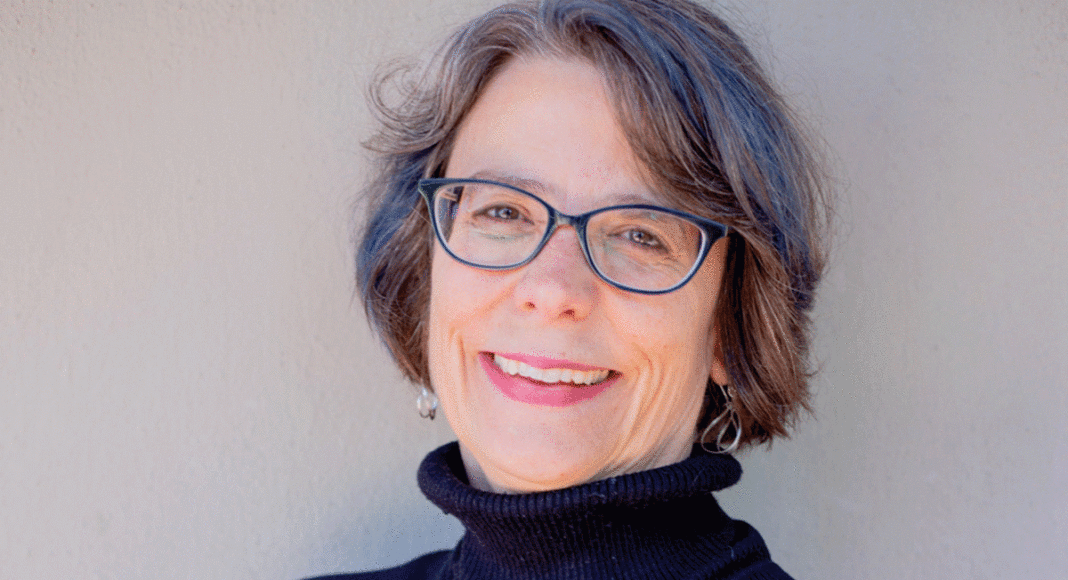On July 30, Santa Cruz Shakespeare will present a staged reading of The Formula, a modern reimagining of A Midsummer Night’s Dream by playwright Kathryn Chetkovich, for one night at the Grove. Chetkovich spoke to GT about her take on the Bard’s classic.
How did the idea come to you?
KATHRYN CHETKOVICH: The play got kicked off for me in part by thinking about A Midsummer Night’s Dream, and how, at the heart of the comic events of that play, there’s a character who needs a magic potion to fall back in love with the ‘right’ person for him. We live in an era in which nearly half of marriages end in divorce, and yet the myth of ‘the one’ strongly persists. With The Formula, I wanted to write a play that has sympathy for that wish, and that also questions it, gives us a glimpse of the damage it can do.
Do you think you might be robbing Shakespeare’s original of some of its enchantment by having the plot’s outrageous mix-up caused by chemistry, rather than magic?
Just to be clear: I am not going head-to-head with Shakespeare! I liked playing with the idea of taking the world we already live in, one in which we already have drugs to adjust moods and mental states, and pushing it just a little further: If you could take a drug to fall or stay in love, would you?
Is comedy especially difficult to write?
I suspect writers always think whatever they’re doing is the hardest possible thing they could have chosen. But yes, comedy is hard. It needs to look effortless, for one thing. And it’s very personal; not everybody finds the same things funny. So much has to happen in the playing—the actors have to have the gift of comic timing, and just the right touch, and they need to know how to create what’s funny without pointing to it as funny. When all those actorly things are clicking, memorably hilarious things can happen, even with a single word. I still laugh when I think of J. Todd Adams saying ‘remuneration’ as Costard in a Shakespeare Santa Cruz production almost 10 years ago.
How can actors affect the success of this play?
The words are important, obviously, but a play is a performance; everything ultimately depends on the actors. That’s especially true for comedy, I think. When the scene turns a corner and is suddenly more serious or painful, it’s the actors who can make that turn and bring us along.
A rom-com with a subtext of edgy uncertainty—is it possible to marry these two theatrical tropes, the satisfying ending and the nagging doubt?
As a title, ‘The Formula’ refers to this chemical cocktail that can create feelings of love, but it’s also a nod to the genre of romantic comedy and our expectations for what’s supposed to happen and who will end up with whom. I like a play that makes you think and feel as well as laugh, and I think for both Ellen [Maguire, the director] and me, the goal here is to find that balance—a play that’s a comic ride all the way along, but that also stays with you after it’s over.
On a scale of 1 to 10, just how excruciating is it as a playwright to sit through a staging of your own characters doing what you’ve written for them to do?
Just about every character in this play gets hurt or behaves badly at one point or another In life. I tend to avoid conflict and chaos, and my characters often start out polite and careful—and then I have to keep pushing to get underneath that surface and let them take the risk, say the awful thing, make the terrible mistake. Stories aren’t about well-adjusted characters going through pleasantly uneventful days, after all. That’s not why we go to the theater.
What we’ll see next week is a staged reading. What can audiences expect to see and experience?
A staged reading has minimal rehearsal, no props, no costumes, and very little, if any, stage direction. The actors are holding their scripts. So it’s a very stripped-down form of dramatic storytelling. But there’s also something exciting about it—the actors are creating a world out of almost nothing, and the audience becomes part of the process by helping to fill in that world with their imaginations.














